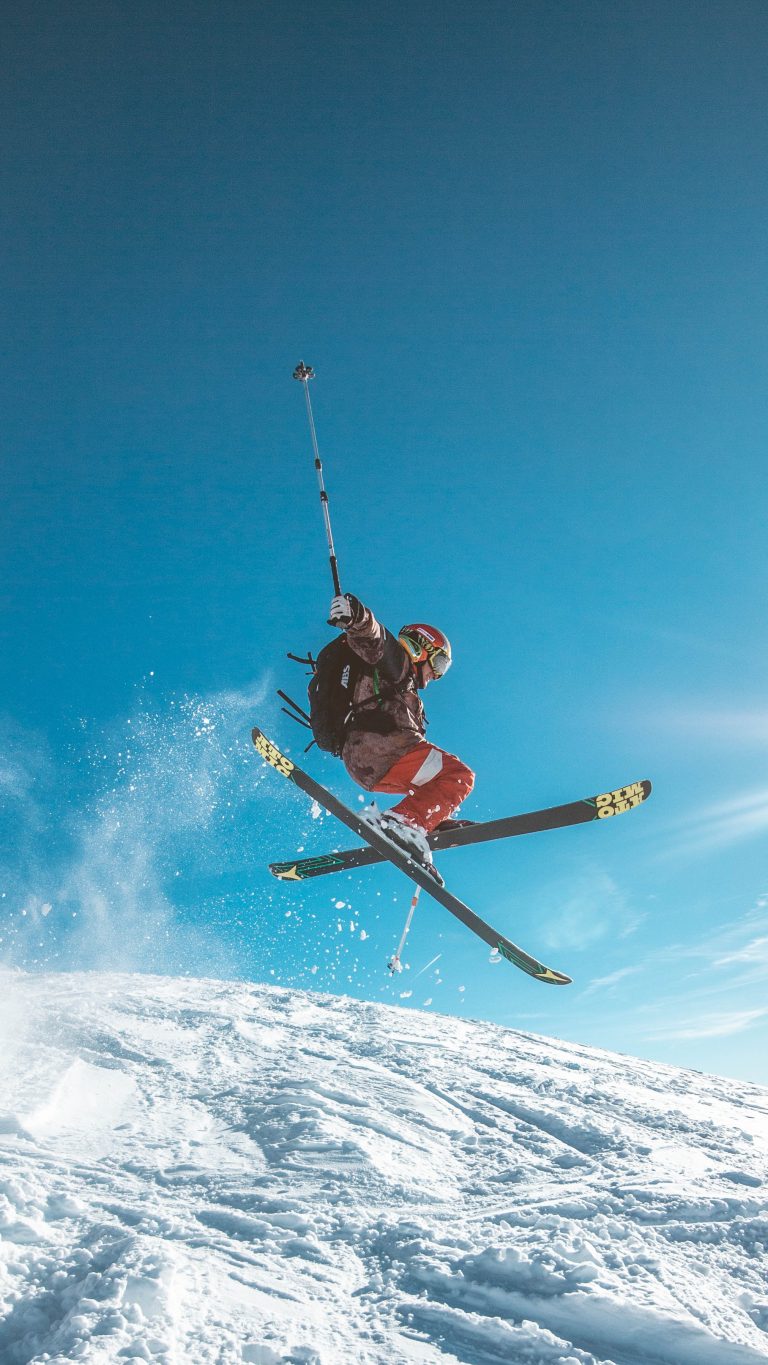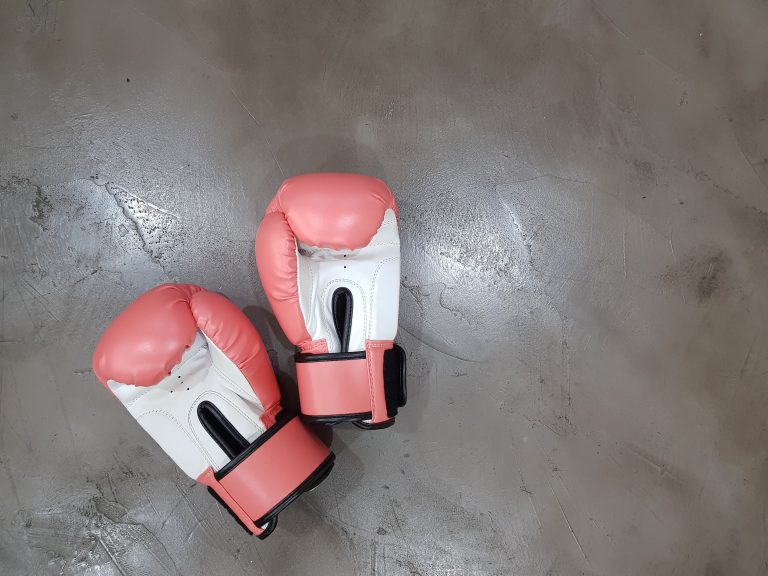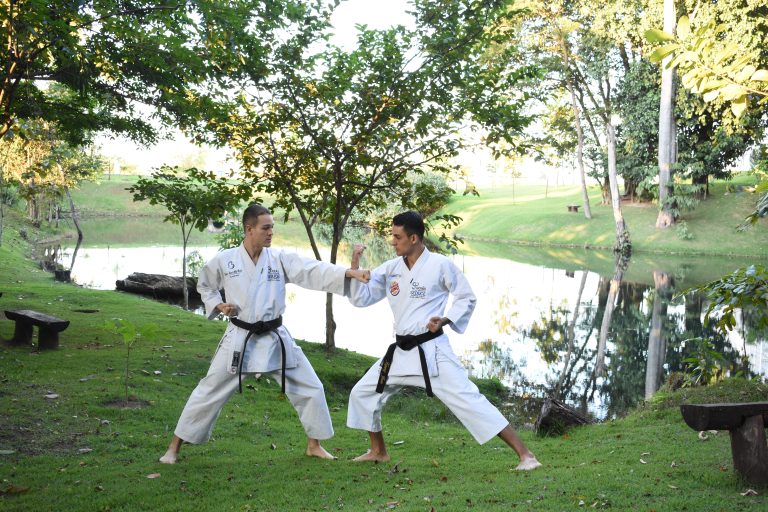Karate: When Is The Right Time To Move Up To Black Belt?
Karate is a centuries-old martial art form that has long been popular around the world. While many of us are familiar with its basic stance and technique, few of us can say for certain when is an ideal time to move up to a black belt in this discipline. To help answer this question and set straight any misconceptions, let’s explore the necessary steps and criteria that should be fulfilled prior to reaching the highest grade in karate.
Steps and Criteria for Earning Your Black Belt.
The path to earning a black belt in karate involves four basic steps – grade, technique, skill, and knowledge. Let’s explore each of these in more detail:
Grade
The first step in the process to becoming a black belt is being able to reach the minimum standard set by your dojo or instructor. This can involve a number of things such as being able to pass all official grading tests, as well as any other additional assignment or qualifications unique to the dojo. It’s not enough to just ‘ survive’ tests at the required level; it’s important to prove that you can excel on a consistent basis.
Technique
The fundamental techniques of karate must be learned and perfected before progressing toward advanced levels. These include basic strikes, blocks, forms, and extensive theory. Techniques need to be executed with accuracy and speed and must be applied in practical situations. Achieving a black belt can involve many years of dedication and practice.
Skill
In order to progress in karate and ultimately earn a black belt, physical skills must also be developed. Agility, speed, balance, and strength are some of these key attributes that can help practitioners excel in their karate exercises. Flexibility and coordination are also important considerations as these can help to make up for any technical deficiencies.
Knowledge
Finally, knowledge is essential for achieving a black belt in karate. It’s not enough to just learn the physical elements; one must also understand the philosophical underpinnings of the art form and the code of conduct expected of all practitioners. Meditative practices may also be incorporated to help foster a spiritual sense of clarity and connection with the martial discipline.
When Is The Right Time For Moving Up To Black Belt?
Working hard and putting together the necessary skill set for moving up to black belt status isn’t something that happens overnight or even in a few months. Depending on an individual’s innate attributes and their dedication to practice, success can take anywhere from 2-6 years to attain black belt level.
At some point the difficult question becomes “When am I ready?” While some may feel a natural urge to move up as soon as they hit their minimum grades, having patience can be beneficial as achieving a black belt is only the beginning of a lifelong journey towards mastery. Those who become black belts too soon may find themselves struggling with technique or knowledge at higher levels.
On the other hand, pursuing one’s goal at an opportunistic pace may lead to stagnation and frustration later on down the line. The answer ultimately lies somewhere in the middle. Individual talent differences and the willingness to keep learning should be taken into account before making a decision about when to start training for black belt status.
Accounting for Special Circumstances
Karate is as much spiritually-rewarding as it is physically demanding. As such, it can be especially difficult for certain individuals with medical conditions such as limited mobility, compromised muscle tone, or weakened immune systems to progress in their practice. In such cases, suggestions on modified forms or alternative physical coaching should be considered to ensure the safest training environment possible given the individual’s unique circumstances.
It’s also important to remember that even if you are unable to become physically proficient at karate due to special circumstances, there are still mental benefits to be gained from engaging regularly with its philosophical frameworks and approaches to mind-body wellness. Even though black belt status may be out of reach under certain conditions, pursuing it may still provide an individual with a greater sense of purpose in life as well as a deeper personal connection with their practice.
The Benefits of Black Belt Status
Once an individual has achieved the pinnacle of their karate training by earning their black belt, they will enjoy both physical and mental benefits stemming from their hard work and dedication. Physically, practitioners can expect improved cardio-respiratory health, muscular strength and endurance, better balance and coordination, as well as improved reflexes and mental health associated with regular meditation sessions.
The mental benefits are even more pronounced – one will gain increased focus, discipline, confidence and self-esteem, unlocking potential that was previously out of reach as well as newfound self-discipline and loftier goals both inside and outside the dojo. As they gain further experience within their new level they will even potentially come across further esoteric teachings carried down through their lineage that weren’t available until after achieving black belt status.
Conclusion
Achieving a black belt in karate is no small feat and requires years of dedication, hard work, focus, and education in order to meet it’s high standards. Taking into account individual circumstances, talent differences, and one’s dedication should all factor into each practitioner’s decision when weighing when and if they should take the next step forward on their journey down the path of martial arts mastery.
Ultimately, the most important thing is to have an open mind and enjoy yourself along the way – after all, ultimately karate is meant to be fun too!
Karate: When Is The Right Time To Move Up To Black Belt?
Karate is a martial art that requires discipline, patience, and hard work. Earning a black belt in karate is a significant achievement and a goal that many martial artists strive for. However, the path to a black belt is a long and challenging one, and many students wonder when the right time is to move up to this prestigious rank. In this blog post, we will address the most frequently asked questions about when the right time is to move up to a black belt in karate.
What is a black belt in karate?
A black belt in karate is a symbol of mastery and expertise in the martial art. It is the highest rank one can achieve in most traditional karate styles. The black belt represents an individual who has dedicated years of training, has a strong knowledge of the technical aspects of karate, and embodies the principles and values of the martial art.
How long does it take to earn a black belt in karate?
The time it takes to earn a black belt in karate varies depending on the individual and the style of karate they are practicing. On average, it takes around 3 to 5 years of consistent training to earn a black belt in karate. However, some people may take longer or shorter depending on factors like their natural abilities, training frequency, and dedication.
What are the prerequisites for earning a black belt in karate?
To earn a black belt in karate, there are several prerequisites that a student must meet. These prerequisites include:
1. Technical proficiency:
To earn a black belt in karate, a student must demonstrate a high level of technical proficiency in the techniques and movements of the martial art. This includes performing katas (sequences of movements), self-defense techniques, and sparring at a high level.
2. Knowledge of karate principles and philosophy:
Karate is not just about physical movement. A black belt in karate must also have a strong understanding of the principles and philosophy of the martial art. This includes concepts like respect, discipline, and perseverance.
3. Physical fitness and conditioning:
Karate requires a high level of physical fitness and conditioning. A black belt candidate must be able to perform at a high level of physical activity without getting tired or injured easily.
When is the right time to earn a black belt in karate?
The right time to earn a black belt in karate is different for every student. It is not just about the number of years of training or the technical proficiency of a student. It is also about the personal growth and development of the individual. A student who has a deep understanding of karate principles and philosophy, demonstrates excellence in technique and movement, and embodies the values of the martial art is ready to earn a black belt.
How do you know if you are ready to earn a black belt in karate?
There are several signs that indicate a student is ready to earn a black belt in karate. These signs include:
1. Consistent progress:
A student who has consistently shown progress in their training, technique, and mindset over a period of time is a good candidate for a black belt.
2. Mentality:
A candidate for a black belt should have a strong mentality, including emotional maturity, self-confidence, and resilience. They should be able to handle the responsibility and pressure that comes with earning a black belt rank.
3. Attitude:
A student who embodies an attitude of humility, respect, and dedication to the martial art is a good candidate for a black belt.
4. Support of the instructor and fellow students:
The support and recognition of one’s instructor and fellow students is an important factor in determining whether a student is ready for a black belt. If the instructor and fellow students see that a student exemplifies the qualities of a black belt, then they are likely to be ready to earn that rank.
Conclusion
Earning a black belt in karate is a significant achievement that requires years of consistent training and dedication. There is no set timeline for when a student can earn the rank of black belt. It depends on the personal growth and development of the individual. A student who demonstrates a deep understanding of karate principles and philosophy, technical proficiency, and embodies the values of the martial art is ready to earn a black belt.
Inhaltsverzeichnis






